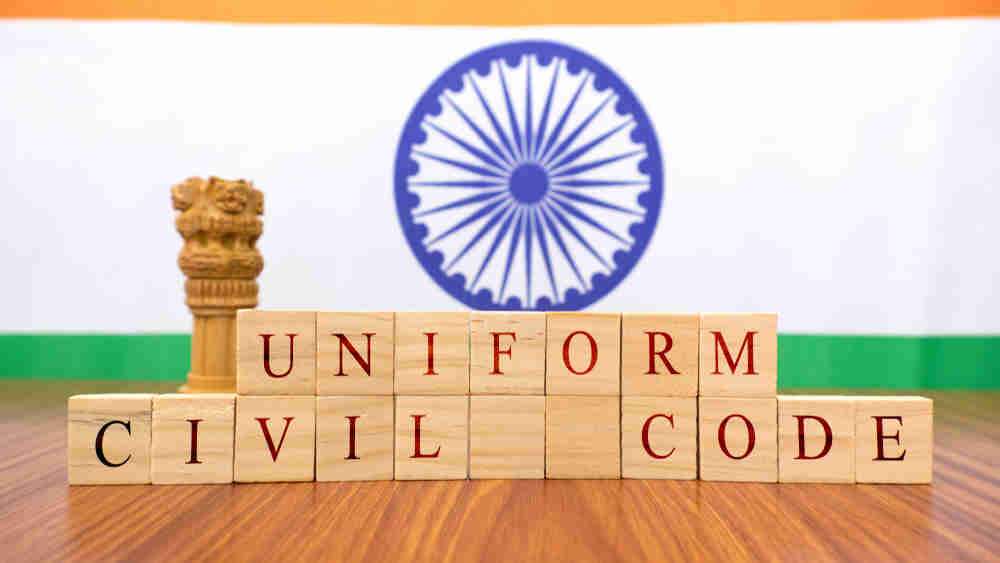News Highlight
A parliamentary panel visits Goa, and reviews its uniform civil code.
The government’s stance on the Uniform Civil Code has evolved from one regimen to the next, especially in the last eight years.
Key takeaways.
- The parliamentary standing committee on law and personnel recently visited Goa to review the state’s uniform and personal laws, the only state in the country where all communities are governed by the same laws relating to marriage, divorce, and succession.
- In Goa, marriage, divorce, and succession laws are familiar to people of all faiths.
Uniform Civil Code (UCC)
- It provides for one law for the entire country, applicable to all religious communities in their matters such as marriage, divorce, inheritance, etc.
- Article 44 of the Indian constitution says, “The state shall endeavor to secure for the citizens a uniform civil code throughout the territory of India.”
Challenges involved in the implementation of the UCC
- Diverse personal laws:
- The customary practices among the Indian communities vary a lot.
- The vast diversity of the personal laws, along with the devotion they have adhered to, makes uniformity of any sort very difficult to achieve.
- Fundamental right violation:
- There is an apprehension that the UCC may be in conflict with the fundamental rights of freedom of conscience of free profession, practice and propagation of religion (Article 26) and the freedom to manage religious affairs (Article 25).
- Opposition from the religious groups:
- This is one of the most trivial and apparent hurdles to bringing up the UCC.
- The fundamentalism deep-rooted in many religions in India doesn’t seem to vanish even in the 21st century.
- Lack of opposition support:
- All political ideologies must merge to achieve this milestone.
- Patriarchy:
- Patriarchal mindset of Indian society poses a big challenge in implementing UCC.
Arguments in favor of UCC
- Establishing a secular society:
- UCC will de-link law from religion which is a very desirable objective to achieve in a secular and socialist pattern of society.
- Gender parity:
- The rights of women are generally restricted under religious law.
- Triple talaq, priority given to men in terms of succession are some examples.
- Constitutional mandate:
- The constitution has a provision for UCC in Article 44 as a Directive Principle of State Policy (DPSP).
- It will be the legislature’s constitutional obligation to pass legislation to enforce UCC.
- Simplification of the Indian legal system:
- UCC will lead to a reduction in litigation emanating from multiple personal laws.
- Uphold rights:
- Many practices governed by religious tradition are contrary to fundamental rights.
- For example, the disparity in inheritance.
- A UCC upholds the rights of an individual.
Argument against UCC
- Interfere in personal matters:
- Religious beliefs and costumes are private affairs, and interference in these matters will affect traditional practices and costumes.
- Threat to minority culture:
- UCC is considered by religious minorities as infringing on their rights to religious freedom.
- Practical difficulties:
- India is a country with diversity in religion, ethnicity, casts etc.
- Hence it is practically not feasible to come up with uniform rules for personal issues like marriage due to the cultural diversity.
- Communal violence:
- The government should be sensitive and unbiased at each stage while dealing with the majority and minority communities.
- Otherwise, it might lead to communal violence.
- Violation of religious freedom:
- The constitution provides for the right to freedom of religion and the practice of one’s choice.
- UCC would violate that right.
Way forward
- Goa:
- Goa is the only Indian state to have a UCC in the form of common family law.
- Study the situation in Goa thoroughly and make adequate legislation.
- Institutional overhaul:
- Current institutions need to be modernised, democratised and strengthened for this change.
- Sincere efforts towards women’s empowerment have to be made for all women of all religions.
- Bring women from all walks of life:
- Apart from the UCC, mandatory women’s reservation in the Parliament, judiciary, etc., should be implemented.
- Awareness generation:
- Make awareness among society about the possible benefits of UCC implementation.
Pic Courtesy: Telegraph India
Content Source: The Indian Express



